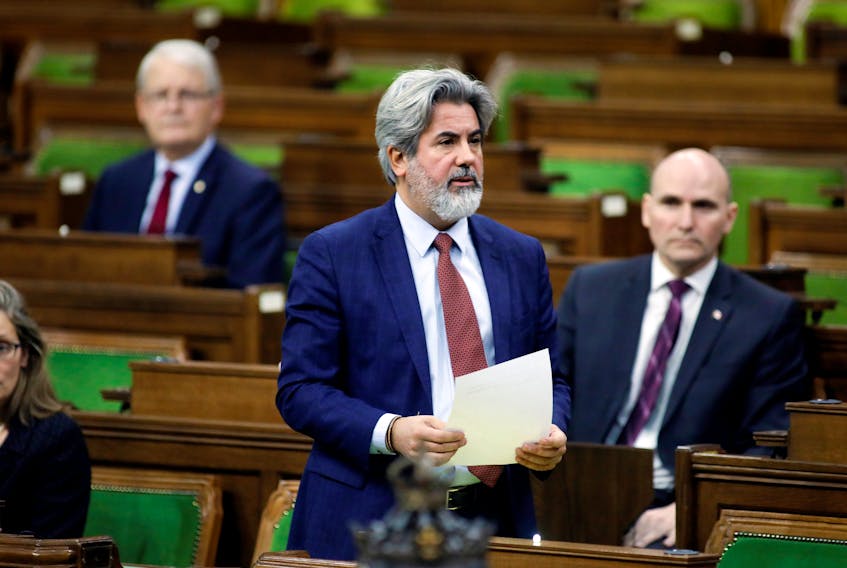OTTAWA — A small gathering of MPs passed the government’s COVID-19 aid bill after lengthy deliberations, and payments to eligible Canadians are expected to roll out in early April.
Thirty-two members of Parliament, proportional to the current party standings, met in Ottawa Tuesday afternoon for an emergency meeting to pass legislation needed to implement a number of measures announced by the government last week. Discussions lasted through the night and into the early morning hours on Wednesday before the parties were able to come to an agreement and pass the legislation.
The Senate then passed the measures Wednesday afternoon and the bill recieved royal assent.
The funding announced by the federal government last week included a $27-billion aid package aimed at workers who weren’t eligible for employment insurance (EI), and whose livelihoods have been disrupted by the coronavirus for any number of reasons, such as being laid off or having to take care of an ill family member.
The benefits would have been doled out to families via two EI-like benefits — one for illness, one for unemployment — of up to $900 bi-weekly for up to 14 weeks, but on Wednesday Finance Minister Bill Morneau announced the format had been streamlined into a single benefit.
The Canada Emergency Response Benefit will deliver $2,000 per month for four months for every non-EI-eligible Canadian who has earned revenue in the past 12 months of $5,000 or more and now doesn't have any income as a result of measures taken to contain the spread of COVID-19.
“We have realized over the past week that the very best way we can support Canadians who are out of work, who are sick, who are in a situation where they're supporting an elderly parent, who are in a situation where they are at home because they are protecting themselves and their families, is by having one emergency benefit,” Morneau said.
The benefit is defined as a wage subsidy to be delivered directly to employees, Morneau said, which means an employer does not have to terminate the employee for them to be eligible — the employee must just no longer be receiving income.
Morneau said the government is putting additional resources in place so applications can be processed quickly and funds delivered as soon as the week of April 6, and that more details about the application process will be forthcoming.
New estimates for this benefit bring the direct support being offered by the federal government from $27 billion to $52 billion.
Other measures implemented to assist Canadians are an increased Canada Child Benefit, GST and $55 billion to meet liquidity needs of Canadian businesses and households through tax deferral.
While all parties had initially agreed to support the measures, the Conservatives took issue with a draft version of the bill released Monday evening that included unprecedented temporary powers related to raising, spending and repealing taxes until 2021 without the approval of Parliament.
Opposition Leader Andrew Scheer released a statement Monday saying the Conservatives would not give the government unlimited power to raise taxes without a parliamentary vote.
Soon after, the government announced it had removed that clause, but even with a portion of the bill removed, Tuesday’s sitting was suspended moments after the bill was tabled for more deliberation surrounding segments the Conservatives called a power grab.
It wasn’t until early Wednesday morning that all parties came to an agreement.
According to a statement by the Conservative party, the opposition was able to convince the government to remove the section that would have allowed it to raise taxes without parliamentary approval, to reduce the period of time allowing the government to have unlimited spending powers, to add sunset clauses and to add a clause requiring regular reports to the House of Commons health and finance committees, and that the finance committee have the right to recall Parliament if any abuses are identified.








